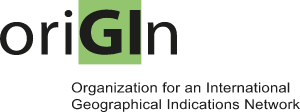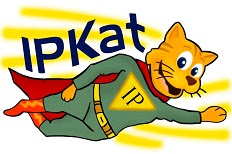
Paraguay: news with no news
From the Paraguayan IPO I read the news about the Mercosur – Singapore Free Trade Agreement (FTA).
Last week, the 6th round of negotiations seemed to end with some consensus on the matter of intellectual property, covering trade marks, patents, design, traditional knowledge and geographical indications. The meeting took place online and was led by the coordinator of the IP section Juan Esteban Aguirre, who is the Director of the International relations at DINAPI (Dirección Nacional de Propiedad Intelectual – that is, Paraguay national IP).
Previous round covered: access to the goods market, rules of origin, commercial defense, technical barriers to trade, investment, electronic commerce, services, telecommunications, government procurement and institutional aspects, trade in services, public purchases, and electronic commerce. The Foreign Trade Information System (SICE) publishes all documents relating to the negotiations, but it has not been updated (last doc is the 4th table of negotiation - April 2022).
MERCOSUR is a trade bloc in South America (Argentina, Brazil, Paraguay, and Uruguay – Venezuela was suspended in 2017) and represents the 5th world economy. The largest exports from MERCOSUR in 2022 is to China (USD$ 31,532 M); same with imports.
In 2019, MERCOSUR concluded FTA with the EU (more info here). An FTA cut hassle involved in exporting and importing goods and services, could it be by the reduction or removal of custom duties and or simplifying custom procedures.Some FACTS on IP
All FIVE countries are members of the WTO and consequently have incorporated the TRIPS agreement into their national legislation – minimum standard of IP.
- Madrid System (trade mark international register): Brazil and Singapore are members
- Hague System (design international register): Singapore is a contracting party
- Patent Cooperation Treaty (patent international register): Brazil and Singapore are members
Good to know – Brazil
The Brazilian IPO may challenge clauses establishing that improvements developed by the licensor may only be used by the Brazilian company upon the execution of a new agreement. Law No. 4,131/1962 regulates foreign capital in Brazil .
INPI assessment and approval of Technology Transfer and IP licensing agreement are mandatory for the purposes of:
- authorizing remittance of royalties to foreign licensor, grantor of IPRs recognized in Brazil;
- trigger tax deductibility by the Brazilian party of amounts paid in connection with IP license, acquisition; and
- entitle the Brazilian party to enforce licensed, granted IP rights.
Other IP facts in Brazil:
- INPI neither annotate agreements nor issue certificate of registration for the license of non-patented proprietary technological knowledge.
- INPI does not accept ‘technology’ licenses and establishes that the technology is permanently transferred to the Brazilian recipient.
- Software agreement registration is not required unless it involves the transfer of source code and know-how.
For more information in Latin America, have a look at the vast information hold at Latin America IP SMEs Helpdesk here.
Source DINAPI.




















